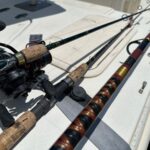There is a debate and even controversy on the Carp vs Bass topic, and the villain in the equation will depend on the fisherman that you speak to.
Do carp eat baby bass or bass eggs? Do bass really eat carp? And does having them both in the same body of water hurt or help the fishing?
Let’s dive into this interesting topic!
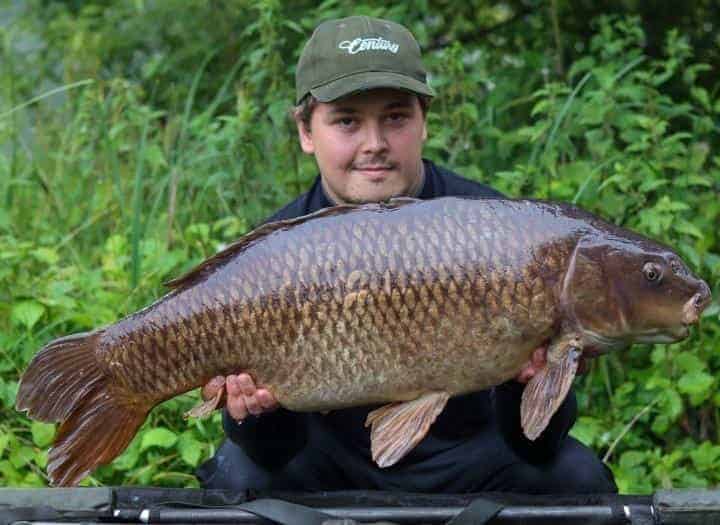
Table of Contents
Why The Debate?
Some seasoned bass fishermen consider carp to be an indicator that there will be fewer bass in the water. That somehow, carp populations hurt bass populations.
Other anglers feel that big carp = big bass. And many anglers feel that carp eat bass eggs, and therefore have detrimental impacts on bass reproduction.
But what does the science say? How do the Bass and the Carp stack up against each other? Are they mutually exclusive, or can they inhabit the same waters together?
Carp and largemouth bass can successfully co-exist in the same body of water. Common misconceptions that carp negatively affect bass populations are not scientifically supported. There is some evidence that carp increase turbidity in the water, which in turn may affect sporting efforts by anglers but this is mostly in small ponds, not large lake systems.
There are many misconceptions in the angling community around carp and their relationship with bass. Much of the information quoted as fact is usually nothing more than hearsay but is believed to be true.
In addition to this, there are different carp species, each with their own feeding and breeding habits, which affect the waters they live in very differently.
See Also: What is the difference between Grass Carp and Common Carp?
Can Carp And Bass Cohabit The Same Water?
Many Bass fishermen dislike carp because they believe that the carp are a threat to the bass population. The lower the bass population, the fewer Bass there are to catch, and the fishing opportunities for this species will be poor.
But are carp deserving villains in this equation? Do their life cycle, feeding habits, and population numbers genuinely affect the number of Bass in a particular body of water?
Carp and Bass Can successfully cohabit in the same body of water so long as the population of one species does not become so large that their numbers start to affect the environment as a whole. Like most species of fish, In manageable numbers, the two fish can cohabit side by side in the same waters without adverse effects.
The crux of the matter is that overpopulation of any species of fish is doing to detrimentally affect all other species in that location. The imbalance caused by the proliferation of one species is going to affect other species, even if the species with a high population does not actively feed on other fish.
With this premise in mind, it is conceivable that a huge Bass population can negatively affect a Carp population in any given body of water.
Do Carp Affect Bass Fishing?
Carp are often introduced into bodies of water as a means to control aquatic vegetation, but as the carp get older, their feeding intensity drops off.
There are several ways that carp numbers can influence the bass population in the same body of water:
- Too many young Carp. If too many young Carp are introduced, they will not only eat the problem vegetation but all other vegetation. This can lead to the destruction of breeding grounds and cover for the Bass or leave breeding grounds vulnerable to other predators.
- Too many Carp of all sizes. Carp not only feed on vegetation but also search for crustaceans and insects in the muddy bottom. This stirs up mud in the water, increasing turbidity, which is not helpful for the Bass. It forces the Bass to nest shallow, which makes eggs and fry vulnerable, and the Bass cannot see clearly to hunt effectively, which keeps the size of the Bass small.
- The Carp can ingest Bass eggs. Even though the Carp do not actively seek out fish roe as a meal, they can ingest the eggs during their foraging on the muddy bottom. Sufficient quantities of Carp could reduce the effectiveness of the breeding of the Bass.
Even though carp are often attributed with eating bass eggs, this is not a part of their normal diet.
Many species of panfish, on the other hand, will actively seek out and raid Bass nests to feast on the eggs.
Can Bass Numbers Affect Carp Numbers?
A large Bass population in a body of water will not only affect carp numbers but also the numbers of other fish species in the water as well. Large numbers of Bass will decimate populations of young carp and can easily reduce their numbers to the point of eradication.
In fact, overpopulation of bass in any body of water can have negative impacts on all species of fish, including ‘stunting’ the bass themselves.
When carp are introduced to waters for vegetation control, the fish that are introduced are often triploid carp that have been rendered sterile.
This means the fish won’t be able to breed, but large numbers of Bass could eat the young carp and reduce the effectiveness of attempts at aquatic vegetation control.
The problem comes in when diploid carp are used because they are cheaper. This means that the carp will be able to breed, and if their numbers are not kept in check by predation or management of the waters, they can quickly become problematic.
FAQ
Do carp scare away bass?
There is no scientific evidence that carp scare away bass. However, small bass may retreat or seek cover in the presence of large carp although most anglers report seeing both species together often.
Will carp eat bass Lures?
Carp are bottom feeders that filter through the sediment for aquatic vegetation. It is not common to catch carp on bass lures, but anglers have reported catches on smaller finesse lures such as ned rigs or micro worms.
Are carp good or bad for lakes?
Carp are a complex group of fish that when managed properly, can provide numerous benefits to lakes and ponds. Conversely, if managed incorrectly and without expertise, carp can be devastating to lake systems and native fish species.
Will Largemouth Bass Eat Grass Carp?
Largemouth Bass are ferocious feeders that will eat anything that will fit in their mouth. As a result, they will most certainly eat juvenile grass carp.
Grass Carp grow to be very large fish; in some cases, they can reach sizes of over 6-feet in length. The Largemouth Bass only eat what they can fit in their mouth, so once the carp grows to a size that is beyond this, bass will no longer target them as a prey species.
Do Carp Eat Other Fish?
Carp are classed as omnivores, which means that they have a varied diet, which may include other fish, although rare. Carp are not active hunters that will deliberately hunt other species of fish.
The main diet of Carp is vegetation, insects, crustaceans, and benthic worms, with the predominant ingredient in their diet being the vegetation component.
See Also: What do Carp Eat?
Conclusion
During my research, I found the complex relationship between carp vs bass best summarized by The American Carp Society, here is what they said:
“Like with any other fish species, Common Carp can causes issues in some situations and under these situations management is required. However, under many, perhaps most, situations Common Carp have little or no effect on other species and other factors are the cause of undesirable environmental conditions.”
-American Carp Society
In balanced numbers, there is no reason for bass and carp to be a problem for the continued success of both species. And this is the case in most managed lake systems around North America.
I hope this article helps you the next time you are out bass fishing or carp fishing.
If you haven’t guessed yet, I love fishing and everything about it!
To learn more about why I started Panfish Nation, visit the About page and follow along on Social Media:
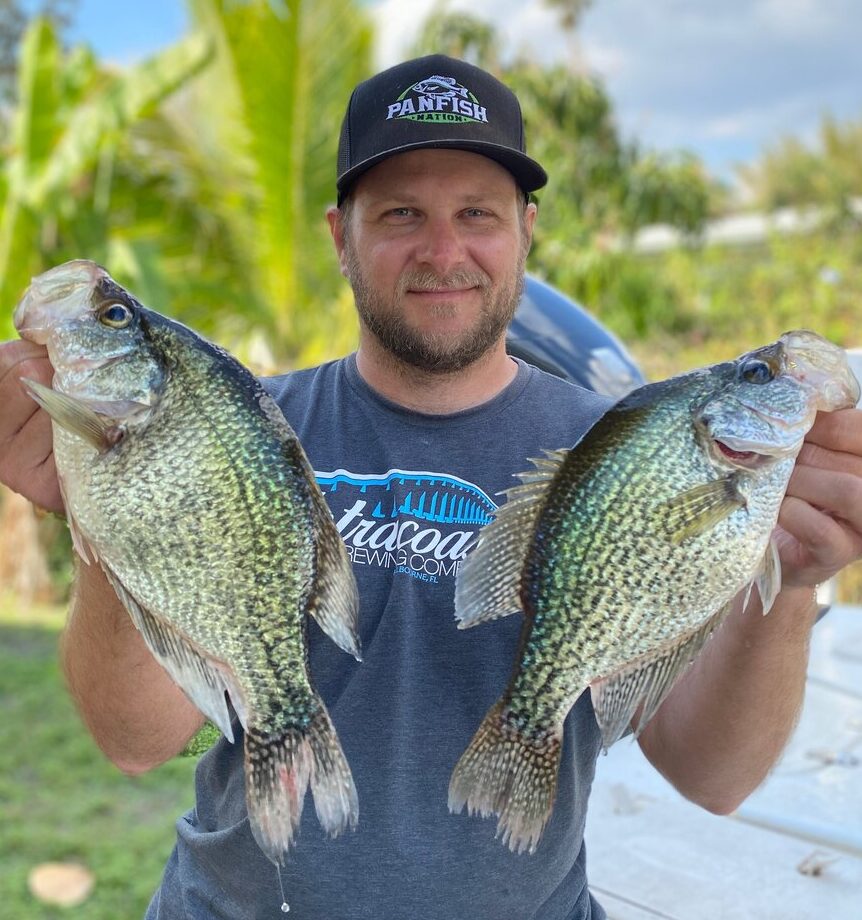
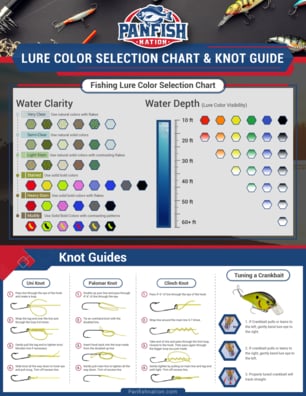
Download a copy of my FREE Lure Color Selection Chart & Knot Guide!
Stay up to date with fishing reports, tackle reviews, industry news, and much more! We respect your privacy, unsubscribe at any time.
Additional Reading
- Crazy Facts About the World Record Crappie
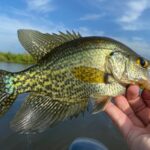
- What Size Hooks for Smallmouth Bass? Quick Guide
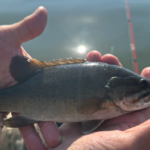
- Large and in Charge-Mouth: 10 of the Best Bass Lures of All Time (And Where to Buy Them)
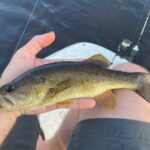
- Emperor of the Sun(fish): What You Need to Know About the World Record Bluegill
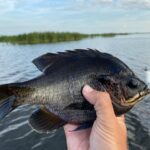
- The Seven Best Lures for Fall Bass Fishing
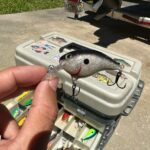
- Which Fishing Line is Best for Bass Fishing With A Spinning Reel?
